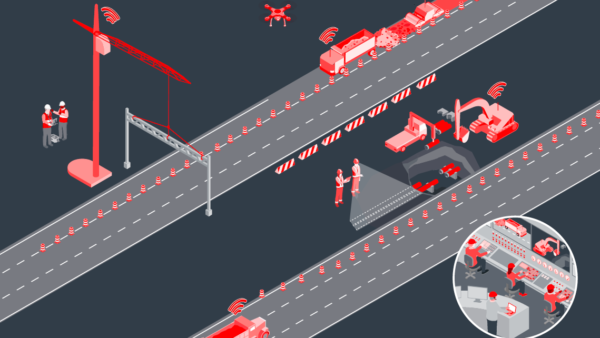The Royal Town Planning Institute (RTPI) and Connected Places Catapult (CPC) have launched a shared vision for the digital future of planning.
Digital planning technologies, or “PlanTech”, create opportunities for more efficient, transparent and strategic planning. Over the past few years, the RTPI and CPC have been working together to understand how better data, tools and systems can support the creation of sustainable, resilient and inclusive places.
The new shared vision reflects key messages that have emerged from this work, drawing on contributions made by planners, academics, civil servants, community groups and technology experts. It outlines a shared ambition for a planning system built upon clear structures for the collection, use and sharing of data, and sets out principles which can guide the ongoing development, use and governance of PlanTech.
Speaking at the CPC’s PlanTech conference in London, RTPI policy manager James Harris said: “We want to harness the power of technology and direct innovative thinking towards improving the planning system so that our members can work more efficiently, effectively and collaboratively under conditions of complexity and rapid change. We hope that this vision can provide those involved in PlanTech with a common agenda for empowering planners and delivering great places.”
Stefan Webb, CPC director of digitising planning, said: “Planners have always been at the heart of the digital transformation of the planning system that Catapult is trying to bring about. This new vision and the principles that underpin it should act as a signpost for those in government and industry who are designing, procuring and building the digital planning system of the future.”
The key principles of the vision are:
- Ensure all published and commissioned documents, and the methods and data within them, are machine readable, so they are easy to interrogate, share and re-use.
- Standardise common built environment language, processes and data to support cooperation between government, developers, infrastructure providers and wider audiences.
- Invest in open source tools, to provide the basic infrastructure for local planning authorities, the market and the public to collect, analyse and visualise data.
- Build scenario models that allow local authorities to experiment and test policies and options in a standardised way.
- Ensure that local planning authorities have the capacity to procure and deliver the right digital tools, and the skills to interrogate their outputs.
- Be inclusive and diverse, considering everyone’s needs and making our services, data and tools accessible to all, including those without the confidence or skills to use digital.
- Encourage new entrants to the planning sector, to develop new tools, techniques and technologies that can improve the way we plan.
- Develop tools and methods for better analysis, monitoring and reporting of the economic, social and environmental outcomes of planning policies and decisions, beyond those usually measured.
- Establish a common structure and data schema for local plans and planning applications, linked to an objective and open national evidence base.
- Communicate the differing weight and flexibility of individual policies and trade-offs between them.
- Harness digital technology to foster participation in planning, unpack the decision-making process, and communicate the impacts of development.
Image: RTPI Policy Manager James Harris (right) with Stefan Webb of CPC













